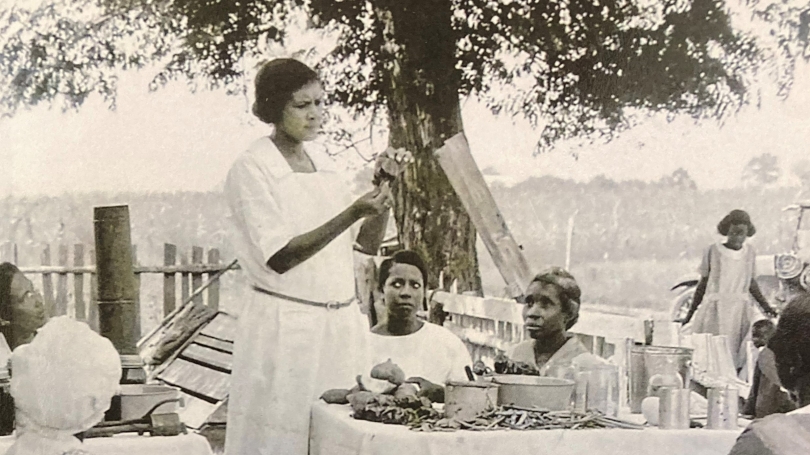
- Undergraduate
- Research
- Off-Campus Study
- News & Events
- People
Back to Top Nav
Back to Top Nav
Professor of Geography Mona Domosh published a new book this month, Disturbing Development in the Jim Crow South. From the publisher's website:
"Disturbing Development in the Jim Crow South documents how Black employees of the cooperative extension service of the USDA practiced rural improvement in ways that sustained southern Black farmers' lives and livelihoods in the early decades of the twentieth century, resisting the white supremacy that characterized the Jim Crow South.
Mona Domosh details the various mechanisms—the transformation of home demonstration projects, the development of a movable school, and the establishment of Black landowning communities—through which these employees were able to alter USDA's mandates and redirect its funds. These tweakings and translations of USDA directives enabled these employees to support poor Black farmers by promoting food production, health care, and land and home ownership, thus disturbing a system of plantation agriculture that relied on the devaluing of Black lives.
Through the documentation of these efforts, Domosh uncovers an important and previously unknown episode in the long history of international development that highlights the roots of liberal development schemes in the anti-Black racism that constituted plantation agriculture and illustrates how racist systems can be quietly and subtly resisted by everyday people working within the confines of white supremacy."
"This story is an important story to tell, and Mona Domosh does it with nuance and an important eye towards not only the raced but gendered realities of this landscape. With it, she highlights an understudied period in American history."
—Joshua Inwood, director, Penn State Lab for Analysis of Culture and Environment (PLACE)
"Disturbing Development in the Jim Crow South offers an extremely important story about race, international development, and forms of resistance to white supremacist logics and institutions within the regime of Jim Crow domestically and imperial expansion globally that is not well known. The empirical details make for a comprehensive analysis that is both engaging and revealing."
—Anne Bonds, associate professor of geography, University of Wisconsin
"Written with care and deep respect, this book seeks to undo the erasure of Black women from farming histories in America by bringing into focus their instrumental role in Black agricultural resistance movements. This is a book for everyone interested in the hidden spaces and rarely recognized geographies of Black women's struggles."
—Beverley Mullings, geography professor, University of Toronto
More about Mona Domosh and her research can be found here.